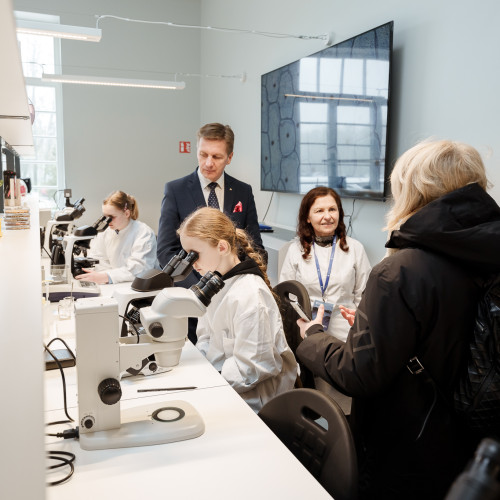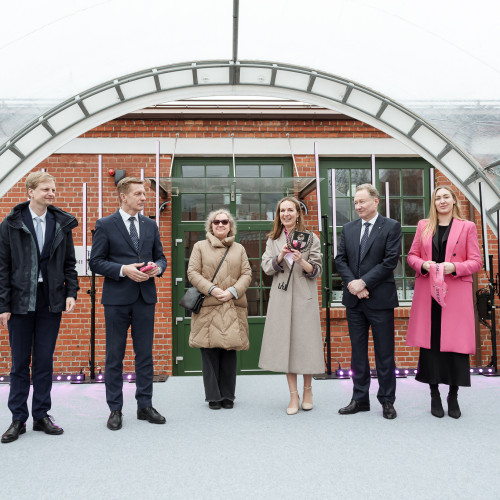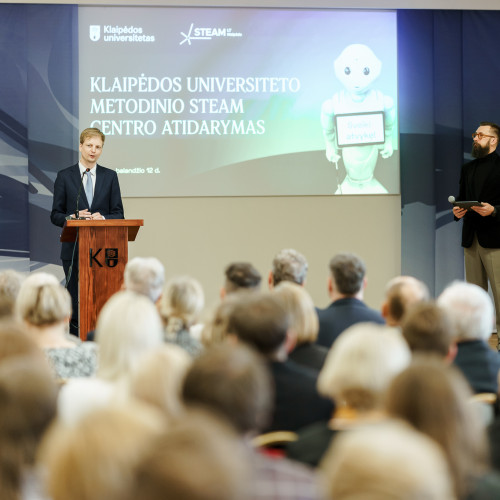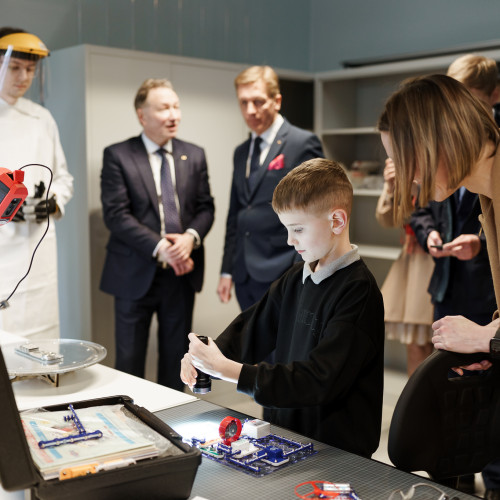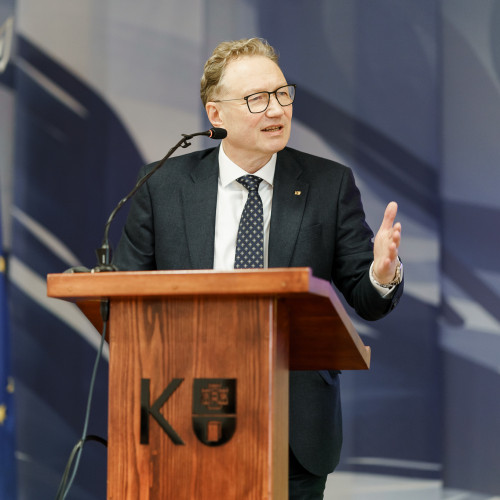The KU Methodological STEAM Center is the first of three methodological centers to be established in Lithuania. Its team started its activities on September 1, 2023, and the new laboratory complex, which has officially opened its doors, will only increase the Center’s capacity to develop new methodologies for scientific discovery tailored for young people in grades 7-12 in Western Lithuanian Region.
“The opening ceremony is not only a celebration, but also a commitment of KU to create a new style, so that STEM occupations, those subjects that are sometimes presented as more difficult to learn, become cool again,” says Justas Nugaras, Vice-Minister of Education, Science and Sport, who attended the opening event. According to him, new technologies, new facilities, and new buildings can help pupils believe that STEM disciplines can be their life path helping them to rediscover technology and choose universities and careers in science. “This is important for Lithuania. If we want to be a progressive, high value-added economy, we need STEM contagion to spread,” says the representative of the Ministry.
Dr. Aelita Bredelytė, the Head of KU Methodological STEAM Center, who took over the symbolic key of the inauguration, was excited about the new opportunities to open up. “STEAM is not about buildings and facilities, but about new ideas that are born and implemented through creative use of existing knowledge and technical capabilities. This is how my team and I envision this complex working, and this is the way we will guide all our visitors: less monotony, more experiential learning and creativity,” she says.
The opening ceremony was attended by Klaipėda City leaders, representatives of the business community, guests from the municipalities of the Western Lithuanian Region, and employees of the education system. According to Prof. Dr. Artūras Razbadauskas, Rector of KU, educators are particularly important partners of the new Center team. “We will strive to provide them with additional competences and instruments to guide young people towards creative development that transcends disciplinary boundaries,” says the Rector of KU.
The KU Methodological STEAM Center will have biology-chemistry, physics-engineering, IT+robotics, and specialized marine laboratories, as well as the FabLab digital manufacturing technology space. A separate STEAM classroom has been set up in Kopgalis, next to the KU Laboratory of Fisheries and Aquaculture. With the help of the team at the Center, pupils in grades 7-12 will be able to carry out research in biology and chemistry, delve deeper into physical phenomena, solve engineering problems, use a 3D printer to manufacture plastic products, operate robots and drones, study fish life, analyze scientific challenges related to marine issues, and perform other activities. It will also host STEAM in-service training programs for educators. In addition to the administrative staff, the KU Methodological STEAM Center employs 6 methodologists and laboratory technicians, all of whom have teaching and research degrees.
The symbolic ribbon-cutting ceremony was assisted by two humanoid robots, Pipiras and Eglė, who delighted the audience with a dance in a style never seen before. By the way, Pipiras, who is a fast learner of Lithuanian language, is also introduced as a member of the KU Methodological STEAM Center team.
Guests at the opening ceremony had the opportunity to visit the new laboratories and observe the activities prepared by the team.
The implementation of the KU Methodological STEAM Center project, from the initial idea generation process to the symbolic key for the inauguration of the Center, took almost five years with an investment of about EUR 1.5 million in the infrastructure of the Center.

